Professor Heather Hartwell research into large scale nutrition interventions to improve public health
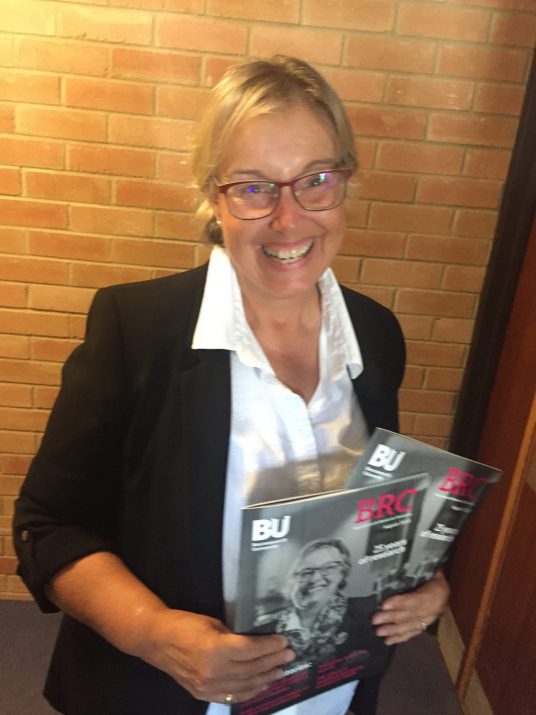 Good nutrition and eating well is an important part of public health and can help stave off a number of age-related illnesses. Over the last twenty years, Bournemouth University’s Professor Heather Hartwell has been carrying out research into nutrition in the context of developing large scale interventions to improve public health. Her work has taken her from prisons to hospitals to workplace canteens. When Professor Hartwell began her research career in nutrition, much of the health policy focus was on one-to-one support for people who were struggling with associated health conditions. The idea that large scale interventions might be successful was only beginning to be recognised.
Good nutrition and eating well is an important part of public health and can help stave off a number of age-related illnesses. Over the last twenty years, Bournemouth University’s Professor Heather Hartwell has been carrying out research into nutrition in the context of developing large scale interventions to improve public health. Her work has taken her from prisons to hospitals to workplace canteens. When Professor Hartwell began her research career in nutrition, much of the health policy focus was on one-to-one support for people who were struggling with associated health conditions. The idea that large scale interventions might be successful was only beginning to be recognised.
“One of the first projects I was involved in at Bournemouth University was a commission from the National Audit Office, exploring nutrition in prisons,” says Professor Hartwell, “We found that while prisoners did have healthy eating options, the catering on offer tended to over-rely on processed foods – bread, sausages and pasties, for example. This meant they were eating more salt than the general population, which can lead to high blood pressure and the risk of heart disease. Among other things, we recommended that they used the prison gardens to grow fresh produce, as it was a low-cost way of adding more vegetables to the food on offer. Around the same time, we were also looking at nutrition in hospital catering. In this setting, we found that there were much fewer healthy food options on offer and that meal production and delivery were overseen by a number of different teams – caterers, porters and ward staff. This meant that there was no real consistency and making it easier for miscommunication to take place.”
“It was quite eye-opening working in two very different public sector contexts,” continues Professor Hartwell, “As researchers, it’s important to go into every situation with humility because until you’re fully immersed in the context in which you’re working, you can’t fully appreciate the barriers that staff might be facing. In the NHS, for example, catering managers are often providing three meals per day, drinks and snacks on a very low budget, which limits what they’re able to do. You can’t achieve perfection in any situation, but co-created research can significantly improve what was there before.”
Working in public sector settings and seeing the difference that larger scale interventions could make on people’s health then led Professor Hartwell to consider the difference that healthier eating options could make in workplace canteen environments. “These settings are really important because they’re where people eat on a regular basis, not just one-off celebratory meals. If people are continually being offered unhealthy food choices, then it can have long-term implications for their health. We’re offered very little information about what’s in our food when we eat out, so my starting point was to improve that.”
Over the last few years, Professor Hartwell has been working on a major European grant, FoodSMART, which has been addressing exactly that issue. The grant enabled Professor Hartwell and her team to develop an App, which uses data provided by catering companies to help consumers to make more informed choices about their meals. “We wanted to create an IT solution for the contract catering industry which would both better inform their consumers and also give the companies an edge when competing for new contracts,” explains Professor Hartwell, “It was slightly ahead of its time when we first created it, but is getting much more interest now as workplaces are increasingly concerned about employee wellbeing. Nutrition can help contribute to better health, which helps to reduce sickness rates and can improve productivity too.”
Alongside FoodSMART, Professor Hartwell and her team were also leading on another European grant, which was looking at increasing our protein intake through vegetables. In the context of an increasing global population, it is important for the agricultural and catering sectors to consider more sustainable sources of food. “The project was about encouraging people to get their protein through vegetables, rather than meat, which uses far more resources than arable farming,” says Professor Hartwell, “It’s a healthier way of meeting our protein requirements as vegetables contain less fat and are much more sustainable in the long run.” Partly inspired by the issues of sustainability raised in this project, Professor Hartwell and her team have recently started working on a new research grant with partners in Brazil to consider how to improve our long term food security.
More information about VeggiEAT can be found here: https://microsites.bournemouth.ac.uk/veggieat/
More information about FoodSMART can be found here: https://microsites.bournemouth.ac.uk/foodsmart/
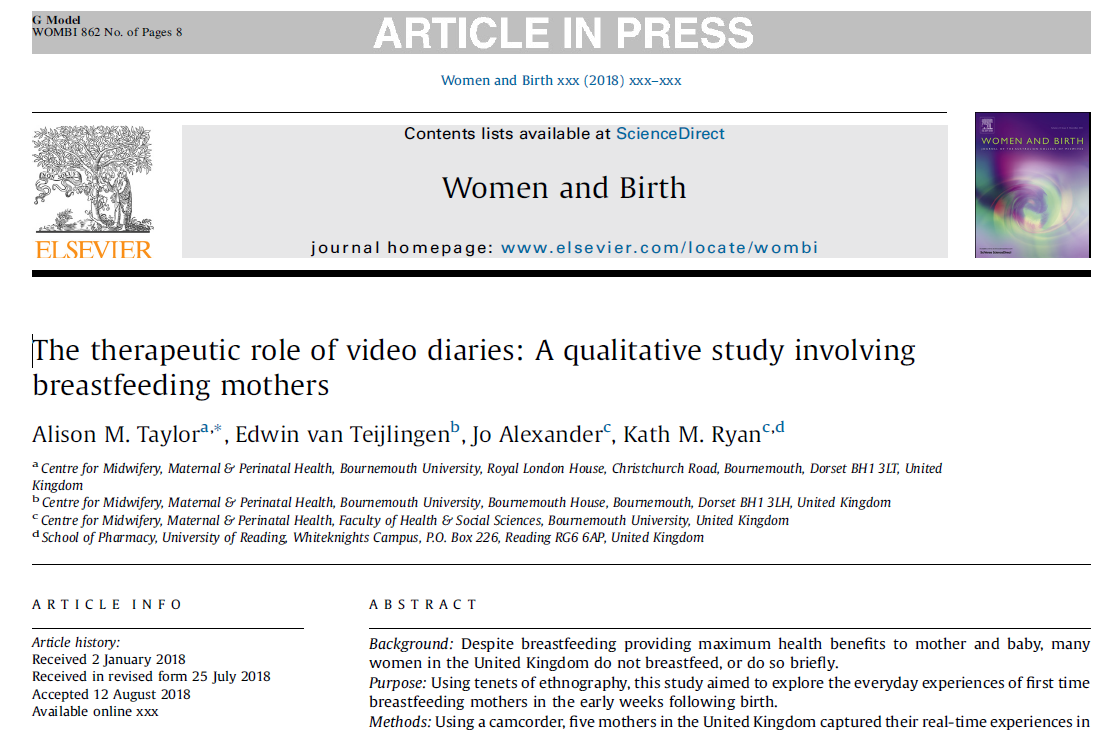 Congratulations to Dr. Alison Taylor whose PhD paper ‘The therapeutic role of video diaries: A qualitative study involving breastfeeding mothers‘ has just appeared online [1]. This paper, in Women and Birth (published by Elsevier), was co-authored with her PhD supervisors Prof. Emerita Jo Alexander, Prof. Kath Ryan (University of Reading) and Prof. Edwin van Teijlingen.
Congratulations to Dr. Alison Taylor whose PhD paper ‘The therapeutic role of video diaries: A qualitative study involving breastfeeding mothers‘ has just appeared online [1]. This paper, in Women and Birth (published by Elsevier), was co-authored with her PhD supervisors Prof. Emerita Jo Alexander, Prof. Kath Ryan (University of Reading) and Prof. Edwin van Teijlingen.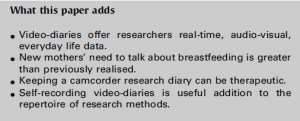

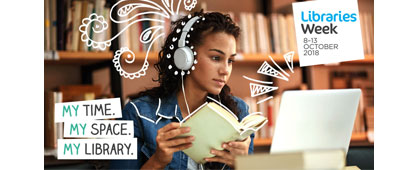
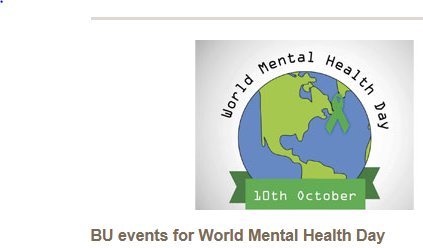

 h focused on examining the brand elements embedded within social media influencers’ (SMI) Instagram posts when attending (fashion) marketing events. The research identified six main brand elements encompassing 24 sub-elements, which were named in relation to the way SMIs communicate brands within marketing event attendance in a fashion context:
h focused on examining the brand elements embedded within social media influencers’ (SMI) Instagram posts when attending (fashion) marketing events. The research identified six main brand elements encompassing 24 sub-elements, which were named in relation to the way SMIs communicate brands within marketing event attendance in a fashion context: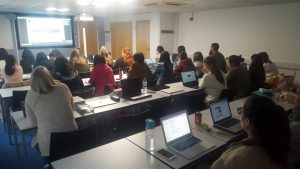
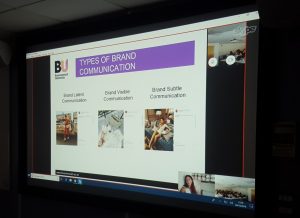

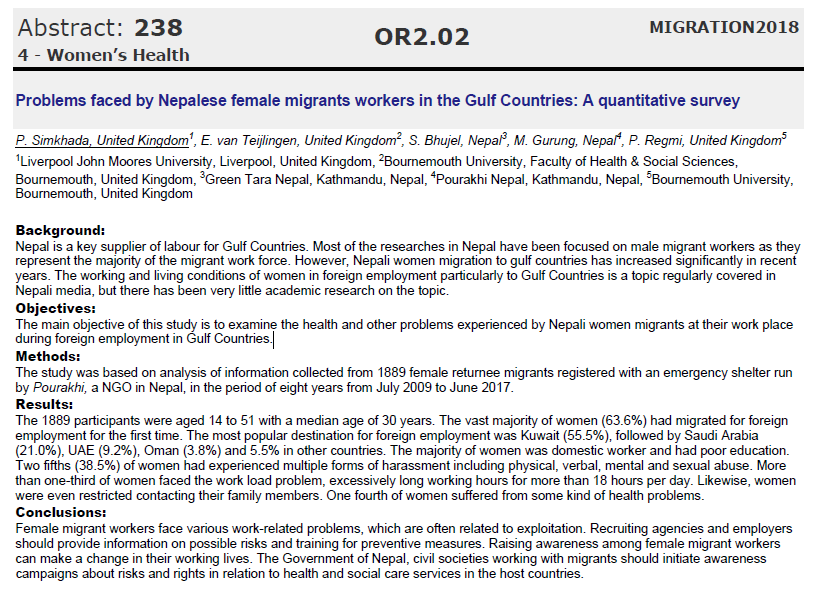
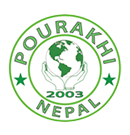

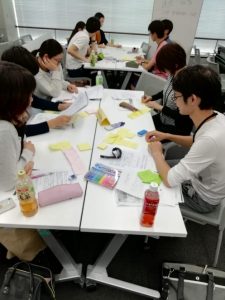

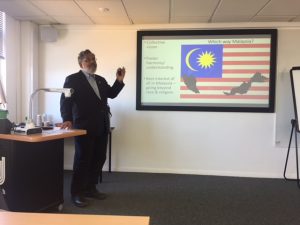


 All this week, The Arts by the Sea Festival large outdoor screen will host documentaries and short films showcasing BU research which explore everything from food poverty to human computer interaction, the genetics of mental health, and the experiences of older male carers.
All this week, The Arts by the Sea Festival large outdoor screen will host documentaries and short films showcasing BU research which explore everything from food poverty to human computer interaction, the genetics of mental health, and the experiences of older male carers.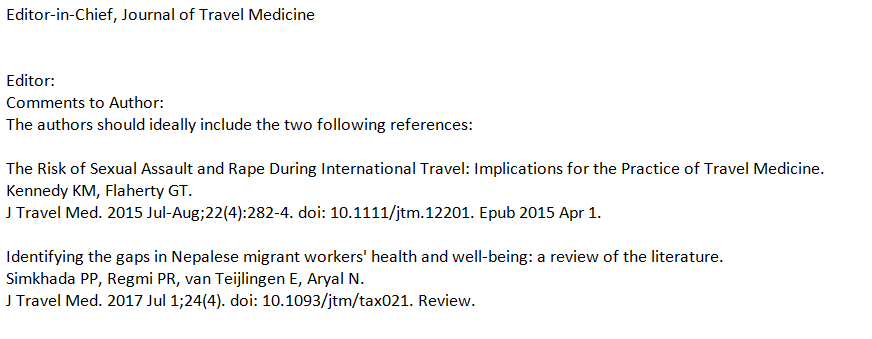
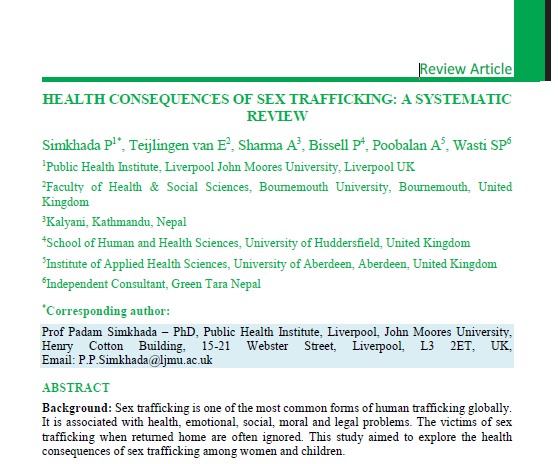
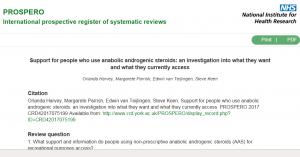
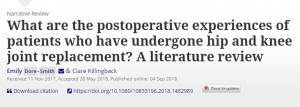
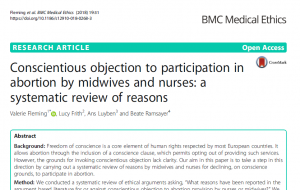
















 FHSS academics teaching in Nepal
FHSS academics teaching in Nepal New weight change BU paper
New weight change BU paper One week to go! | The 16th Annual Postgraduate Research Conference
One week to go! | The 16th Annual Postgraduate Research Conference Geography and Environmental Studies academics – would you like to get more involved in preparing our next REF submission?
Geography and Environmental Studies academics – would you like to get more involved in preparing our next REF submission? Congratulations to three former BU staff
Congratulations to three former BU staff MSCA Staff Exchanges 2024 Call – internal deadline
MSCA Staff Exchanges 2024 Call – internal deadline Applications are now open for 2025 ESRC Postdoctoral Fellowships!
Applications are now open for 2025 ESRC Postdoctoral Fellowships! Horizon Europe – ERC CoG and MSCA SE webinars
Horizon Europe – ERC CoG and MSCA SE webinars MaGMap: Mass Grave Mapping
MaGMap: Mass Grave Mapping ERC grants – series of webinars
ERC grants – series of webinars